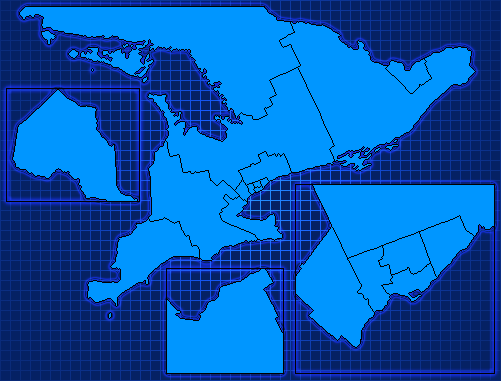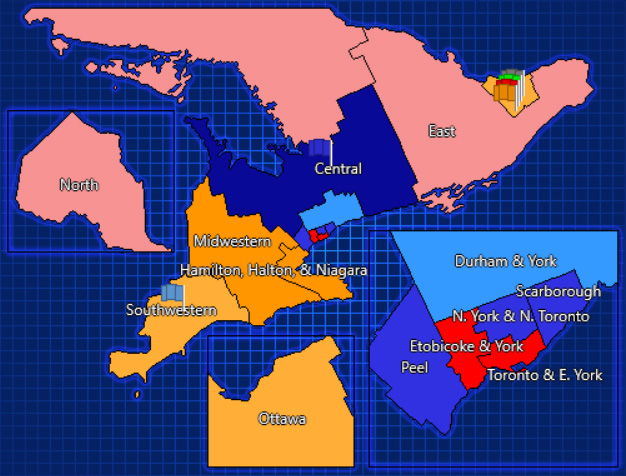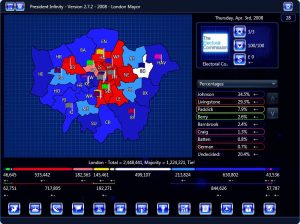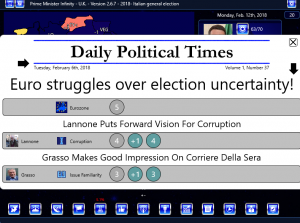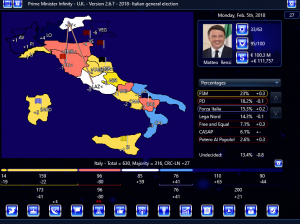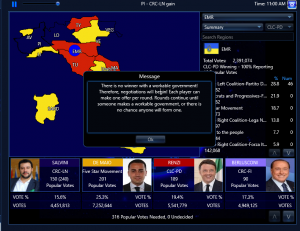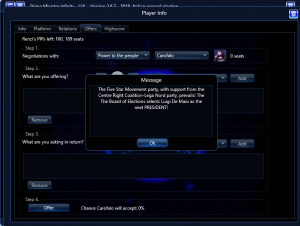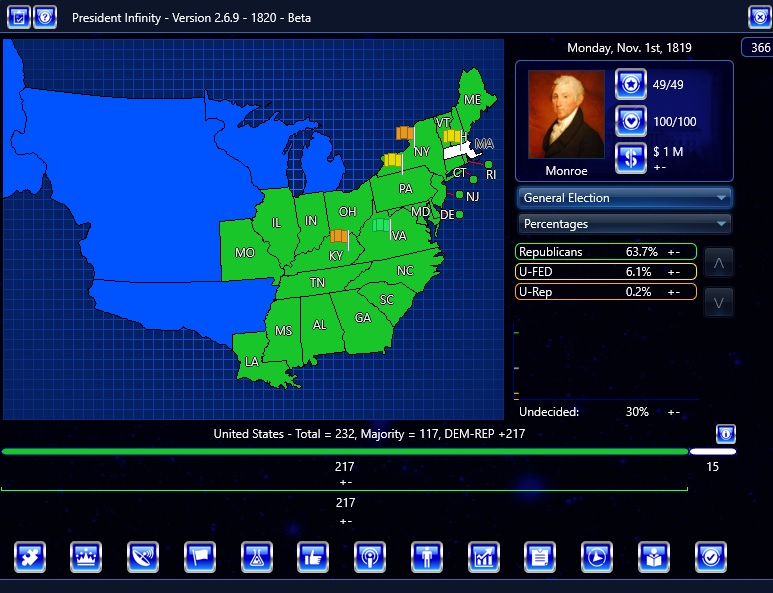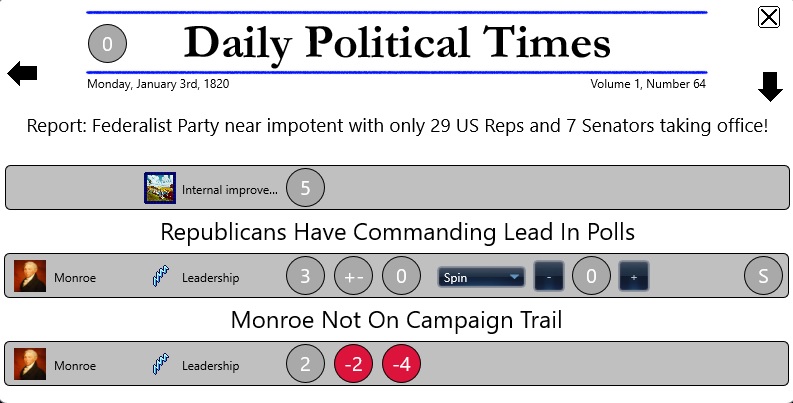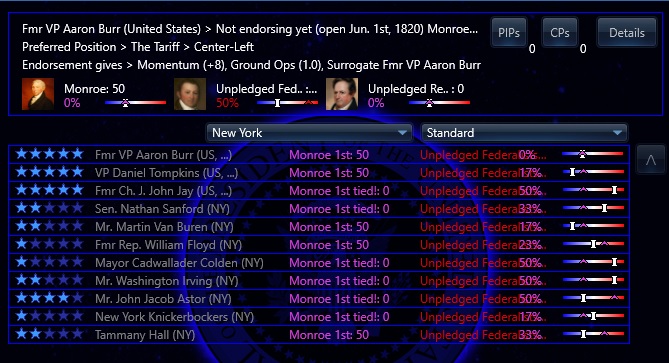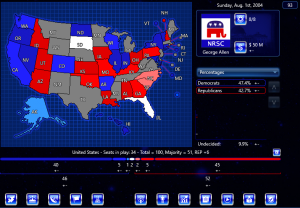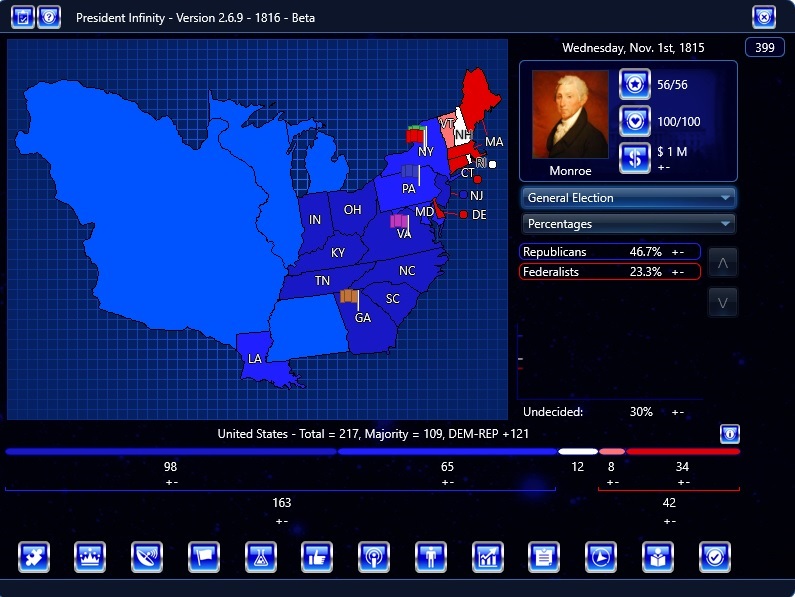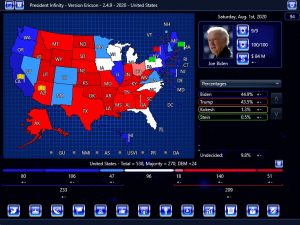Suggestions are welcome!
Here is the download for the scenario:this is what i changed,I will most likely add Independent,and third party candidates and what if independents next
CA(R): Rocky De La Fuente,Power 1,Why not? this is the only declared republican on the wiki page and he is intresting, he has ran very unsucessful bids for the presidency multiple times,and until we can have non partisan elections this will do. De La Fuente 32%,Feinstein 68%
MN(R): Michelle Bachman,Power 3,This race could be very interesting, Even though I think many people will completely overlook this race but i honestly think Bachman will make it interesting, this is down my list of “dark horse” elections along with Texas. Bachman 48 Smith 52
MI(R): Justin Amash,Power 2, He isn’t even officially declared,but I think he is going to,and will win the nomination, This race will only be even in the same ballfield of “competitive” because Trump won here. Amash 41% Stabenow 59%
HW(R): Linda Lingle,Power 1,Only cause she ran last election,no Republican has even declared, she got 37% last election,though If she would run again id expect a similar defeat. Lingle 30%,Hirano 70%
NY(R): Rick Lazio,Power 2,I think this would be a good candidate to put up against Gillibrand,Though I see him facing an easy defeat,Though note at age 41 he lost to Clinton 55-43 which I’d say is honestly impressive. Lazio 42% Gillibrand 58%
NJ(R): Christ Christie,Power 4,I know,I know this isn’t likely but he never declined running,and is listed as a potential candidate. Even though he’s unpopular,I think he’d be the closest out of all other potential canidates. Christie 46% Merandez 54%
MD(R):Micheal Steele,Power 3,He has a chair on the RNC,and was close in his last senate attempt,could be intresting. Steele 44% Cardin 56%
CT(R):Mathew Corey,Power 1,Meh nothing exciting here,Murphy will dominate.Corey 31% Murphy 69%
RI(R):Robert Flanders,Power 1,Declared candidate,I believe he will be the nominee. Flanders 25% Whitehouse 75%
MA(R):Geoff Deihl,Power 2,Probably isn’t really going to give a challenge to Warren. Deihl 35% Warren 65%
NE(D):Jane Raybould,Power 2,why isn’t this race getting any more talk? I know its a solid R at the moment but Fischer was only polling at 42% in a H2H against Raybould,look for this to be closer than expected. Raybould 46% Fischer 54%
WY(D):Garry Trauner,Power 1,nothing special here easy Republican hold. Trauner 24% Barrasso 76%
WA(R):Dino Rossi,Power 1,No announcment of running but gave a good challenge a few years back, Rossi 39% Cantwell 61%
UT(D):Jenny Wilson,Power 1,Basically the only canidate who is declared and polling in the H2H, Wilson 21% Romney 79%
MAINE(R):Paul Lepage,Power 4,Inc Governor of Maine could give King a real challenge. Lepage 47 King 53
VT(R):John MacGovern,Power 1,No ones beating Bernie. MacGovern 20% Sanders 80%
NM(R):Susana Martinez,Power 4,Incumbent New Mexico Gov, Martinez 49 Heinrich 51
MN(S)(R):Kurt Daudt,Power 3,Good canidate to face Klocabaur ,Daudt 45 Klokabaur 55
Other Changes to 2018 Base Scenario
Rick Scott-Power 3 to 4
Ohio Changed % to Dem 53 Rep 47
Pennsylvania Changed % Dem 53 Rep 47
Tennessee Changed % Rep 56 Dem 44
Texas Changed % Rep 54 Dem 46
Changed Ted Cruz Power From 3 to 4
Changed Virginia % Dem 53 Rep 47
Changed West Virginia % Dem 52 Rep 48
Changed Wisconsin Republican candidate to Kelli Ward power 2
Changed Wisconsin % to Dem 53 Rep 47
V2 Updates:UPDATE!!! Download: Senate – 2018 All Can
MN(2)(S)-Changed Republican Candidate to Karin Housley—Changed % to REP 46% DEM 54%
MS(2) Added to ON Republican Cindy Hyde-Smith Democrat Mike Espy REP 54% DEM 46%
MAI-Republican Changed from Paul Lepage to Eric Brakey KING 57% Brakey 43%
IN-Republican Change to Mike Braun
MI Republican changed to John James
WA changed to republican running NONE
Wisiconsin changed republican to Leah Vukmir REP 45 DEM 55
WV Changed candidate to Patrick Morrisey
New Mexico changed Republican to Mike Rich REP 42 Dem 58
Hawaii Republican changed to Thomas Edward White
New Jersey Republican changed to Bob Hugin REP 42 DEM 58
MN(1) Republican changed to Jim Newberger
I will do a FINAL update after all the primaries thank you everyone for the suggestions:)

